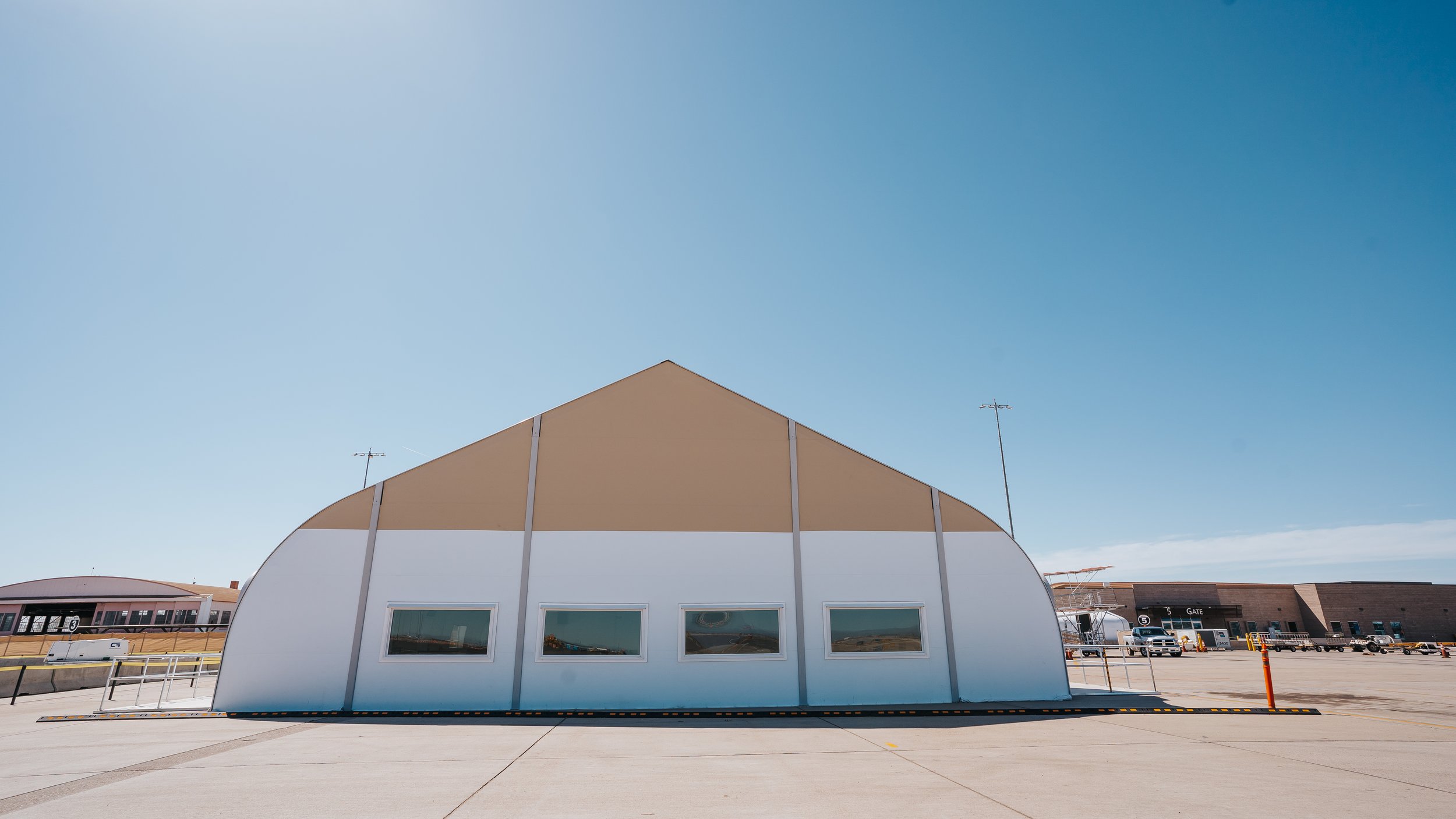Maximizing Sustainability with Pre-Engineered Structures
The global construction industry has a significant impact on the environment, accounting for approximately 39% of global energy-related carbon emissions. As concerns over climate change and a need for sustainable practices continue to grow, it is essential to consider environmentally-friendly alternatives to traditional construction methods. One solution at the heart of RPM Team’s efforts is pre-engineered and modular construction, which offers many benefits regarding sustainability, environmental protection, and ecological responsibility.
Reduced Waste
Pre-engineered and modular construction solutions are produced in a controlled environment with exacting specifications, which can help minimize the amount of waste generated during the construction process. This approach can reduce the environmental impact of construction by reducing the amount of material that ends up in landfills. For example, Sprung Structures, delivers their product to the client’s site prefabricated, eliminating the substantial waste associated with conventional construction, where typically 3.9 pounds of waste is generated for each square foot of finished space.
Energy Efficiency
Pre-engineered and modular construction solutions are often designed with energy efficiency in mind. Many of these structures incorporate energy-efficient components, such as insulation, high-performance windows, and energy-efficient lighting, which can help reduce the building's overall energy consumption and lower greenhouse gas emissions. Sprung Structures are exceptionally airtight, minimizing heat or cooling loss. They utilize formaldehyde-free fiberglass insulation to insulate their structures, adding foil backing to increase efficiency and assist in the containment of radiant energy. Sprung also incorporates skylights and windows to take advantage of natural light and reduce power consumption.
Sustainable Materials and Design
Many pre-engineered and modular construction solutions are made using sustainable materials, such as recycled steel and reclaimed wood. Additionally, the modular construction process often requires less raw materials and energy than traditional construction methods, which can help reduce the environmental impact of the construction process. Sprung uses an extruded aluminum frame, which is 100 percent recyclable without affecting quality. Aluminum does not rust, is inherently strong and lightweight, and has exceptional long-life expectancy. Sprung's highest-quality membrane includes a DuPontTM Tedlar® PVF Film, the most innovative and technically advanced product of its kind, with unmatched durability and longevity. Finally, turnkey construction solutions can incorporate sustainable design principles into the entire project, from planning to execution, helping to ensure that the final product is as environmentally friendly as possible.
Relocatability
Pre-engineered and modular construction solutions are designed to be adapted and reused, offering a sustainable option for future needs. Structures like Sprung’s are disassembled, reconfigured, or expanded and relocated for another application. No demolition is required, and no waste goes to the landfill. As a fast, reliable alternative to conventional construction, pre-engineered and modular solutions dramatically reduce construction timelines.
LEED Certification
LEED (Leadership in Energy and Environmental Design) certification is a rating system that recognizes sustainable building practices and design. Buildings that meet LEED certification standards are environmentally responsible, efficient, and healthy places to live and work. Many innate qualities of pre-engineered and modular structures align with the credits and prerequisites in the LEED® point-based rating system, making them an excellent option for obtaining certification. Sprung Structures have documented aspects that support building efforts to obtain certification, including recycled content, energy performance, durability, construction waste management, and the ability to deconstruct.
Pre-engineered and modular construction solutions offer many benefits in terms of sustainability, from reducing waste to incorporating sustainable materials and design to providing energy efficiency and the ability to relocate and repurpose. The construction industry has a responsibility to consider sustainable options, and pre-engineered and modular construction is a step toward creating a more sustainable future.




